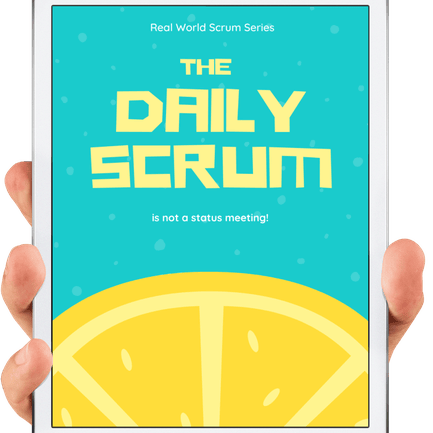The Surprising Way Daily Stand-Ups Foster Deep Work
In agile environments, the bane of productivity often comes dressed in the guise of constant interruptions. Imagine trying to navigate through a complex coding challenge or wrapping your head around intricate finance calculations, only to be pulled away by a colleague’s plea for help with a failing unit test. Or the product manager sticks her head in and calls everybody for another meeting – no explanation what it’ll be about. Sounds familiar? If so, you’re not alone.
| How many times have you been interrupted last Friday? |
|
|
|
|
|
The Paradox of Interruptions in Agile Workspaces
Constant interruptions are not just annoying; they’re detrimental to deep work, the kind of focused effort required to solve complex problems or create something new. Yet, in a twist of irony, the solution to this pervasive issue might be found within a practice often criticized for being just another interruption: the daily stand-up.
My Journey to Reclaiming Focus
As a senior developer in an open office space, my days were frequently punctuated by interruptions. My teammates, while well-meaning in their requests for assistance, inadvertently hindered my ability to engage in deep work. The frustration was palpable, not just for me but for anyone who’s been in a similar position.
The turning point came from an unexpected source: our existing daily stand-up. Traditionally viewed as a brief check-in to discuss progress and blockers, we began leveraging it as a strategic tool to plan our day, especially around collaborative efforts and individual deep work sessions.
The Daily Stand-up: A Tool for Organized Collaboration
Here’s how we transformed our daily stand-ups from routine interruptions into sessions that enhanced our productivity:
- Focused Communication: Instead of general updates, we used the stand-up to signal our needs for the day, including requests for help or collaboration. This allowed us to schedule time for assisting others without disrupting deep work sessions.
- Scheduled Deep Work: By stating my intention to focus on complex tasks during my peak productivity hours in the morning, I set clear boundaries for uninterrupted work time. My teammates understood that I would be available for collaboration or to offer help only after these periods.
- Adaptive Collaboration: The stand-up became a forum to plan pairing sessions or to plan discussions of complex issues as a group, ensuring that we dedicated time to these activities without impeding individual productivity.
The Impact of Refined Daily Stand-ups
The result was nothing short of transformative. By dedicating just 10 minutes each morning to strategically planning our day, we minimized disruptions and maximized productive collaboration. The office atmosphere shifted from one of frustration and constant interruptions to a more focused and efficient environment. Our productivity soared, and so did our job satisfaction.
Beyond the Stand-up: Cultivating an Agile Mindset
While our success with refined daily stand-ups was a game-changer, it was just one piece of the puzzle. The true value of this practice lies not in the stand-up itself but in the agile mindset it fosters. Here are a few key takeaways for agile practitioners looking to replicate this success:
- Effective Communication: Use daily stand-ups to communicate needs and boundaries clearly. This helps in planning collaborative efforts without compromising individual deep work time.
- Flexibility and Adaptability: Agile is all about adapting to change. Use stand-ups to adjust your team’s approach to work based on current needs and priorities.
- Empowered Collaboration: Encourage team members to voice their needs and offer their assistance. This empowers everyone to contribute to the team’s success while respecting individual work preferences.
- Continuous Improvement: Always look for ways to improve your stand-up routine. What works for one team (or project) may not work for another. Stay open to experimenting with different approaches.
Conclusion
The daily stand-up, often maligned as just another meeting, holds the potential to dramatically reduce interruptions and enhance productivity when executed with intention and strategic planning. By turning our stand-up into a tool for organized collaboration and focused work planning, we not only improved our productivity but also our enjoyment of the work itself.
So, to my fellow agile practitioners, I urge you to reconsider the daily stand-up. Done right, it’s not just a meeting; it’s a powerful tool for fostering an environment where deep work thrives alongside collaborative efforts. Embrace the daily stand-up, refine its execution, and watch as it transforms your workday from a series of interruptions to a symphony of productivity. You can thank me later—after your next highly productive stand-up, that is.
 |
$29.00 $19.00
The Daily Scrum Book
The Daily Scrum is not a status meeting! A field guide for Scrum Masters and Agile Coaches. Learn how to handle this... Read more |
|
|
Thank you for reading The Agile Compass. I'm Matthias, here to help you help those around you become agile.
To learn and grow even faster, upgrade to a paid subscription. You’ll join our premium Discord community and get access to all past articles.
|
|